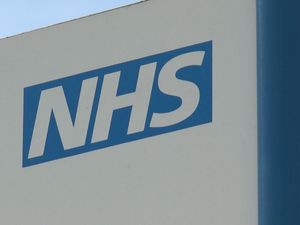Thousands more going to hospital due to alcohol
The number of people going to hospital with alcohol-related conditions has risen by 20 per cent across the Black Country and Staffordshire since 2013, according to new NHS figures.

Thousands more people needed treatment due to the effects of booze in 2018/19 compared with six years earlier, increasing the strain on under-pressure hospitals.
Staffordshire saw a large increase in cases, rising by almost half - 47 per cent - from 16,230 to 23,810.
There was a 22 per cent rise in both Wolverhampton and Walsall. In Wolverhampton cases rose from 5,510 to 6,720, while in Walsall the total climbed from 5,390 to 6,550.
Alcohol-related hospital admissions rose by almost 600 in Dudley over the period, from 7,560 to 8,130 - an increase of eight per cent.
In Sandwell, there was only a slight increase, from 7,670 to 7,720.
Shropshire saw a massive 50 per cent surge - as cases jumped from 5,400 to 8,090.
The figures include anyone who was admitted to hospital where the primary reason or a secondary diagnosis was linked to alcohol.
Across the West Midlands region, the overall total was up 13 per cent on the previous year and 35 per cent than 2012/13.
As well as health implications, experts fear increasing alcohol admission is only increasing the pressure on hospitals already battling long A&E waiting times and high bed occupancy rates.
Nuno Albuquerque, group treatment lead at addiction firm UK Addiction Treatment Group, which carried out the analysis, said: “The problem with alcohol in this country is a ticking time bomb about to explode. NHS Hospitals in particular across the West Midlands are crippling under pressures directly attributable to the misuse of alcohol; a drug that is so socially accepted yet so incredibly dangerous.
“People here are seemingly struggling with their alcohol consumption; drinking so much alcohol that it is leading to hospitalisation and the diagnosis of further, debilitating conditions, yet the Government continues to have their heads buried in the sand.
“The question is, why do we still not have an Alcohol-specific Strategy, as promised back in 2018? It is a huge problem and one that needs immediately addressed as a matter of urgency.”





